5G networks will not only improve connection speeds, but also open up opportunities for development in areas such as artificial intelligence, the Internet of Things (IoT), and industrial automation. Applications such as smart cities, remote healthcare, and autonomous vehicles can all be deployed more efficiently thanks to 5G networks.
Vietnam is gradually becoming one of the leading countries in Southeast Asia in deploying 5G networks. With strong support from the Government and major telecommunications corporations such as Viettel, VNPT, and MobiFone , Vietnam has successfully tested 5G networks in many major cities such as Hanoi, Ho Chi Minh City, and Da Nang. This is an important milestone marking the remarkable development of the country's information and communication technology infrastructure.
However, there are also many challenges when developing 5G, especially in terms of network security and infrastructure investment costs.
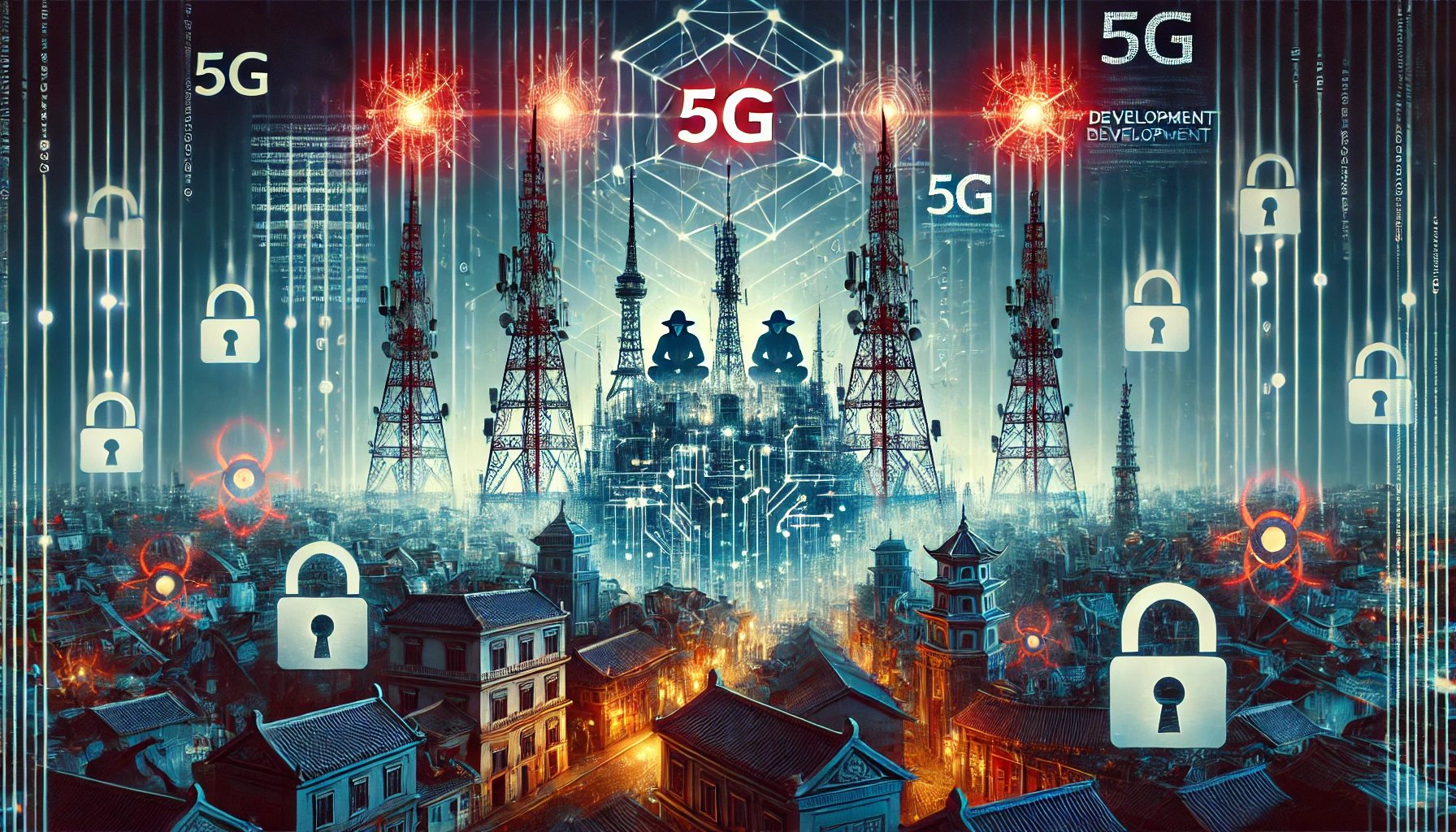
Talking to reporters of Dai Doan Ket Newspaper, cyber security expert Nguyen Hoang Thang, co-founder of the Anti-Fraud Project on Cyberspace (Chongluadao.vn), it is undeniable that the development of 5G will create opportunities and great advances in all areas of economic and social life. However, the development of 5G is also the time when challenges in cyber security need to be truly concerned.
Accordingly, 5G promotes the development of the Internet of Things (IoT) and a series of smart connected devices. At that time, each device (camera, self-driving car, smart home...) can be an attack target, the attack surface of the network increases significantly. Hackers only need to exploit a weakness in the IoT system to cause a supply chain attack.
In addition, with the superior bandwidth and transmission speed of 5G, distributed denial of service (DDoS) attacks can reach an unprecedented scale, causing network system collapse, disrupting important services such as telecommunications, finance, and healthcare ...
According to cybersecurity expert Nguyen Hoang Thang, 5G promotes the transmission of big data, including sensitive personal information of users. If the security system is not strong enough, this data can be stolen, abused, leading to privacy violations, financial fraud, etc.
“In addition, 5G networks require a distributed core network architecture with software-defined networking (SDN) and network virtualization. This poses the risk of remote attacks on the core network infrastructure, completely paralyzing the telecommunications system.
AI technology is increasingly used by hackers to carry out automated attacks, smart phishing or deepfake attacks that take advantage of the 5G network to quickly spread fake news and cyber violence...," the expert emphasized.
According to cybersecurity expert Ngo Minh Hieu (National Cyber Security Monitoring Center), users also need to equip themselves with knowledge and skills to be safe in cyberspace in the face of challenges from the development of the 5G network.

According to this expert, users need to update software regularly, ensuring that the operating system and applications on the device are always updated to the latest version to patch security holes.
Use strong passwords and two-factor authentication (2FA): Set up complex passwords and enable 2FA to increase the security of online accounts.
It is also important to manage your network connections. Avoid connecting to unsecured public Wi-Fi networks. If necessary, use a virtual private network (VPN) to protect your data. When not in use, turn off Bluetooth, NFC, and other connections to reduce the risk of attack.
Limiting the sharing of sensitive information online is also one of the things users need to keep in mind. Avoid providing personal information on untrustworthy websites or applications.
“Regularly review and adjust the access permissions of applications to data and functions on the device. At the same time, raise awareness in recognizing and avoiding online scams. Be cautious with suspicious emails, messages or links; do not open attachments or provide information if you are unsure of the source,” Mr. Ngo Minh Hieu emphasized.
Additionally, users can also use additional security software. Install and maintain anti-virus and anti-malware programs to protect the device.
Follow news and documents from reputable sources to stay informed about new attack methods and preventive measures, experts say.
Source: https://daidoanket.vn/nhieu-thach-thuc-ve-an-ninh-mang-khi-5g-phat-trien-tai-viet-nam-10296831.html


![[Photo] More than 17,000 candidates participate in the 2025 SPT Competency Assessment Test of Hanoi National University of Education](https://vphoto.vietnam.vn/thumb/1200x675/vietnam/resource/IMAGE/2025/5/17/e538d9a1636c407cbb211b314e6303fd)
![[Photo] Nearly 3,000 students moved by stories about soldiers](https://vphoto.vietnam.vn/thumb/1200x675/vietnam/resource/IMAGE/2025/5/17/21da57c8241e42438b423eaa37215e0e)


![[Photo] Readers line up to visit the photo exhibition and receive a special publication commemorating the 135th birthday of President Ho Chi Minh at Nhan Dan Newspaper](https://vphoto.vietnam.vn/thumb/1200x675/vietnam/resource/IMAGE/2025/5/17/85b3197fc6bd43e6a9ee4db15101005b)
![[Photo] Prime Minister Pham Minh Chinh chairs meeting on science and technology development](https://vphoto.vietnam.vn/thumb/1200x675/vietnam/resource/IMAGE/2025/5/17/ae80dd74c384439789b12013c738a045)





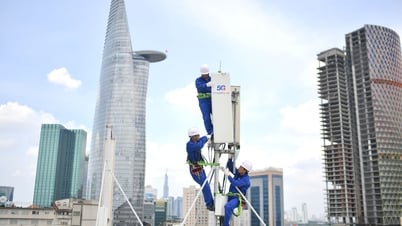

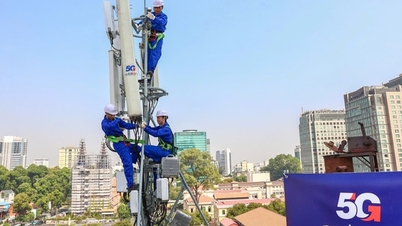




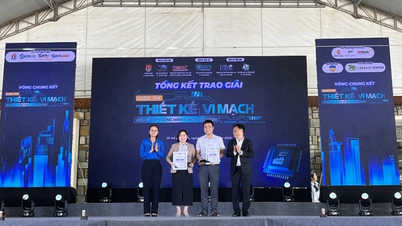

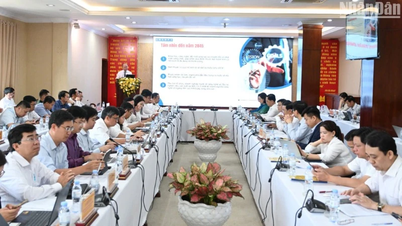


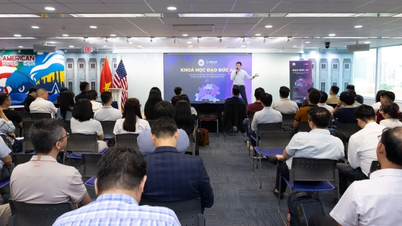































































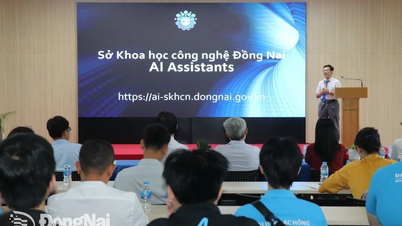
















Comment (0)